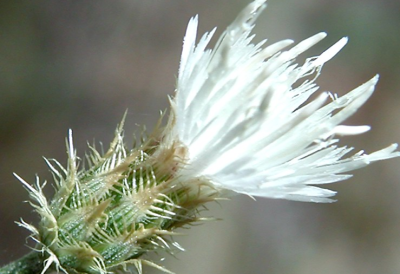Diffuse Knapweed: Identification & Description
The Noxious Diffuse Knapweed (Centaurea diffusa) commonly referred to as white knapweed, tumble knapweed, and spreading knapweed is a biennial or annual plant. The plant which is a type of Asteraceae is a member of the genus Centaurea.
A grown Diffuse Knapweed has a height of about 10 t 60 cm with a lot of branches and a single big taproot. The plant has a basal rosette of leaves, well divided and feather-like with lightly visible hairs on them. The leaves on the stem are alternate, small-sized, not so divided with greyish-green colored. The stems have multiple branches and with light cobweb-like hairs. The base of the stems usually has flowers growing individually or in clusters of three or two. The flowers, though basically white, some may turn purple or pink as a result of the hybridization of other knapweeds. Their triangular bracts have pale yellow or green color and with spine tips. This plant is commonly confused with other members of Asteraceae family, because of their stunning resemblance in the rosette stage.
Knapweeds have oval-shaped, dark-colored seeds (which have no pappus) inside a small fruit. The seeds are the sole medium for reproduction, and a single plant may produce as high as up to 18,000 seeds in a year.
Do you seek well-trained professionals to help or guide you in controlling/managing a noxious diffuse knapweed infestation? Request a quote today or Contact SprayTech, Colorado weed control specialists, at 720-248-0000 to discuss control options


